Stress is an inevitable part of our every day lives – from trying to manage work, to trying to find time for family and yourself. It’s important to recognize and manage it because stress can significantly raise the risk of heart disease and stroke.
The Latest Mikey Network News

It’s so important to stay on top of healthy food options, especially for your heart but we can also understand that sometimes you might not have the time to cook a healthy meal. This is why according to Dr. David Friedman we have come up with 5 healthy sandwich options that are quick, easy, and delicious to make!
- Turkey Sandwich: Turkey contrains less fat and has an abundance of protein. Add some lettuce, mayo, cheese, and a few slices of tomato on delicious brown bread and you’re good to go!
- Tuna Sandwich: Tuna contains vitamin B-12 and B-6 which reduces the risk of cardiovascular disease, it also contains a high level of protein and fats.
- Bacon, Lettuce, and Tomato (BLT): This sandwich is not only easy to make but contains a lot of nutrients, although, bacon contains a lot of sodium, try replacing it with Turkey bacon. This is a delicious treat to throw on some whole wheat brown bread!

Eating healthy on a regular basis is extremely important for good heart-health but overall, your health. Therefore, WebMD published a great article on 21 different types of food that are beneficial to your heart.
Fresh Herbs
Adding this to your food, instead of salt will not only add flavour but it will eliminate your salt and fat intake.
Black Beans
Beans have so many heart-healthy nutrients. Beans can lower blood pressure, and the fiber in them can help control cholesterol and blood sugar levels.
Salmon: Super Food
Salmon is a super-food that is rich in omega-3s. Omega 3’s are healthy fats that can lessen the risk of heart disorders.
Olive Oil
This oil is a healthy fat, which is rich in heart-healthy antioxidants, and they may protect your blood vessels.
Walnuts
A small handful of walnuts a day may lower your cholesterol and protect against inflammation.
Check out more at WebMD.

5 medication-free strategies to help prevent heart disease
Although genetics does play a part in your overall heart health, there are steps you can take to help lower the risk of heart disease. If you follow these 5 strategies you’ll be well on your way to a heart-healthy lifestyle.
1. Don’t smoke or use tobacco
Smoking or using tobacco is one of the most significant risk factors for developing heart disease. Chemicals in tobacco can damage your heart and blood vessels, leading to narrowing of the arteries (atherosclerosis). Atherosclerosis can ultimately lead to a heart attack. When it comes to heart disease prevention, no amount of smoking is safe. Smokeless tobacco and low-tar and low-nicotine cigarettes also are risky, as is exposure to secondhand smoke.
2. Exercise for 30 minutes on most days of the week
Getting some regular, daily exercise can reduce your risk of fatal heart disease. And when you combine physical activity with other lifestyle measures, such as maintaining a healthy weight, the payoff is even greater.
3. Eat a heart-healthy diet
Eating a special diet called the Dietary Approaches to Stop Hypertension (DASH) eating plan can help protect your heart. Following the DASH diet means eating foods that are low in fat, cholesterol and salt. The diet is rich in fruits, vegetables, whole grains, and low-fat dairy products, which can help protect your heart. Beans, other low-fat sources of protein, and certain types of fish also can reduce your risk of heart disease.
Continue reading at www.mayoclinic.com for the rest of these 5 heart health tips.
Understanding what types of heart-healthy foods to incorporate into your diet can be a confusing process. There are many articles online stating that certain foods or diet fads can benefit you; but who’s to know what is real and what isn’t? Fortunately for us, our Registered Dietitian, Marsha Rosen, has curated a list of heart-healthy foods that are highly beneficial for your diet.
Your list of foods for a balanced diet should include a variety of choices from all food groups.
Here are some excellent suggestions to begin with and build on.
10 Heart Healthy Foods
Salmon – Salmon and other fatty fish like mackerel, anchovies, sardines, herring, trout and arctic char; are extremely good for heart health as they contain plenty of omega-3 fats, which can help to lower the risk of heart disease. It’s recommended that you aim to eat at least 2 servings of fish a week.
There are three types of omega-3 fats:
- ALA (alpha-linolenic acid)
- EPA (eicosapentaenoic acid)
- DHA (docosahexaenoic acid)
All three types of omega-3 fats are important to have in your diet.
Other foods that contain omega-3 fats include:
- Eggs
- Margarine enriched with the omega-3 fat DHA – made with fish oil
- Yogurt – fortified with Omega-3
- Soy beverage – Omega-3 fortified
- Soybeans – edamame
Oatmeal – Oatmeal is a high in soluble fibre, which can help to lower cholesterol. It’s recommended that you avoid eating instant oatmeal, as it often will contain sugar, and instead opting for traditional old-fashioned oats.
Berries – Berries such as strawberries and blueberries are believed to carry antioxidants that help to decrease blood pressure and dilate blood vessels. This is attributed to the benefit of compounds known as anthocyanins, and flavonoids.
Potatoes – Although potatoes can be more challenging to your heart healthy dining, if you don’t deep fry them, they can be extremely good for your heart. They’re rich in potassium and high in fibre (if the skin is left on), which again, can help lower blood pressure and the risk of heart disease.
Tomatoes – Similar to potatoes, tomatoes are high in heart-healthy potassium. Plus they’re a good source of the antioxidant lycopene. Lycopene is a carotenoid that may help to get rid of “bad ” cholesterol, keep blood vessels open and lower heart attack risk.
Nuts – Any nuts that you consume are good for your heart fibre (As long as they’re not salted or contain added oils or fats), and also contain vitamin E, which helps to lower bad cholesterol.
Legumes – Legumes such as dried beans, peas and lentils, are an excellent source of protein without a lot of added fat.
Broccoli, spinach and kale – When it comes to your heart health, you can’t go wrong with vegetables. Green vegetables like broccoli, spinach or kale can give an extra boost to your heart. These are high in carotenoids, which act as antioxidants and can free your body of potentially harmful compounds. They’re also high in fibre and contain lots of vitamins and minerals.
Flax seeds – Flax seeds as well as chia seeds are high in omega-3 fatty acids and fibre content.
Avocado – These soft, tasty fruits will provide your body and heart with plenty of healthy fats. They’re composed of monounsaturated fats, high in antioxidants, and also contain potassium to help lower heart disease factors.
And finally:
When following these healthy food options, remember that those that are higher in fat – nuts, seeds, fatty fish, oils, even though they are heart-healthy fats, can work against you. How can that be?? If your portions of these foods are too large it can lead to unwanted weight gain which again will contribute to a less healthy you. Follow Canada’s Food Guide for suggested serving sizes.
Copyright © 2003-2025, The Mikey Network. All Rights Reserved.
Privacy Policy







